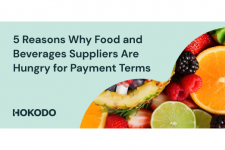Badger cull: RSCPA again accused of ‘bullying and hypocrisy’

The National Farmers Union (NFU) repeated the allegations – originally made last October – after the government authorised farmers in two areas of England to shoot badgers from tomorrow (June 1), in a bid to control bovine TB.
The government plans to cull about 5,000 badgers in two pilot zones – one in West Somerset and one in West Gloucestershire.
Freedom Food – the RSPCA’s farmed animal welfare assurance scheme – wrote to farmers in the affected areas recently to remind them that in order to qualify for the scheme: “… it is only permitted to cull wild animals that pose a threat to the welfare of farm animals, when other non-lethal methods have already been applied. The culling method used must also be humane”.
‘Make the situation worse’
It claimed that the best scientific evidence indicated that the proposed badger cull would be of little help in reducing bovine TB in cattle. In fact, it could make the situation worse in some areas by encouraging the population to disperse, it said.
“Consequently any Freedom Food farm participating in the cull would be in breach of RSPCA welfare standards and their agreement with Freedom Food,” the letter warned.
An NFU spokesman told FoodManufacture.co.uk that the union’s position on such communications had not changed since a warning was issued last year. Last October, Martin Haworth, NFU director of policy, said that the union took the threat to its members “very seriously” and would consult its lawyers.
“I feel extremely disappointed that the RPSCA has resorted to such tactics normally reserved for other animal rights organisations,” said Haworth. “It seems to us that this letter has nothing to do with the welfare of farm animals, which is what the Freedom Food scheme is all about.
“Instead, it looks to us like the RSPCA trying to attack farmers’ businesses financially to try to stop farmers from lawfully participating in what is a sadly necessary step to tackle a devastating animal disease, just as the RSPCA has tried to do by calling on shoppers to boycott milk produced on dairy farms in the cull areas.”
An RSPCA spokeswoman said today (May 31): “We sympathise with farmers dealing with the problems of this disease and care just as much about cattle as we do about badgers, but agree with the experts that a cull would be of little help in eradicating bovine TB in cattle, and could even make it worse in some areas.
‘Could be wiped out’
“At least 70% of badgers, many of them healthy, in large areas of the countryside could be wiped out. We stand ready to work with the farming community to deliver more effective alternatives including the vaccination of both badgers and cattle and improved biosecurity.”
Farming minister David Heath told BBC Radio 4’s Today programme that nations which had successfully controlled bovine TB – such as Ireland, Australia and New Zealand – had all been forced to cull wildlife.
“Culling is one part of a strategy to get us back to disease free status,” he said. The pilot cull was necessary to help prevent the deaths of 28,000 cattle a year and a cost to the UK economy of £1bn over a 10-year period, Heath added.
Meanwhile, a new YouGov poll has shown that while 34% of people oppose a badger cull, 66% either support the measure (29%), don’t know (22%) or have no strong feelings (15%).
Adam Quinney, NFU vice president, said: “The results show that a badger cull is not a big issue for the vast majority of the British public. But to the thousands of farming families living with the constant threat of TB, and its devastating effects on their businesses and families, tackling this disease is the most important issue in their lives.
“More than 38,000 cattle were compulsorily slaughtered in Great Britain in 2012 in the fight against TB and we must take action now.”





















